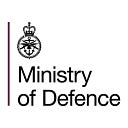Keeping the peace on Aphrodite’s Island
Lieutenant James Wakeley of the 7 RIFLES Battlegroup currently deployed to Cyrpus reflects on his time on the UK’s longest-running UN mission
When the 250 men and women who comprised the 7 RIFLES Battlegroup first came together to serve the cause of peace on a cold and wet English winter’s morning, few had heard of Covid-19. By the time we completed our weeks of pre-deployment training and landed on the already summery island of Cyprus, the disease was shutting down the world and changing the way in which billions of people lived their lives.
Our experience was of course bound to be affected.
Our first month in theatre was dominated by getting to grips with the mission and also with learning to exercise, eat, meet and work in a way that minimised the risk of contracting or transmitting Covid-19.
As United Nations peacekeepers we were conscious of our duty to put combatting Covid at the forefront of everything we did. We had a duty not only to our national and international colleagues and to our mission, but also to the civilian population around us — on both sides of the Buffer Zone — to pose no risk whatsoever and to do all we could to ensure the suppression of the pandemic.
We relished the challenge and the opportunity. For most of us, this was our first operational tour.
Serving the cause of peace takes many forms. Beyond mounting patrols into the Buffer Zone, we have liaised regularly with both opposing forces in order to counter violations and to try to build trust, goodwill, and cooperation between them and the UN.
Building such warm sentiments often depends on developing interpersonal rapport, which was of course threatened by the artificial distancing forced upon us by Covid. Many of our first contacts with the Turkish Forces and Greek Cypriot National Guard were conducted by video link. However, Covid did not let us lose sight of the mission.
And that mission is an incredibly intricate one. Years of hard work by past generations of peacekeepers may have succeeded in de-escalating the military situation to an extent that we no longer mount armed patrols into the Buffer Zone, but tensions undoubtedly remain.
The presence of peacekeepers in the Buffer Zone is necessary to ensure that ceasefire violations are monitored, protested, and brought to an end.
This ensures that they do not alter the military status quo, cause tit-for-tat retaliation, and consequently destabilise the situation, thereby making the chances for a permanent peace settlement ever more remote.
Cyprus is an island of deep and enduring sensitivities. The events of its past are very much still within living memory, not least because they are annually commemorated by both sides, in different ways and for wholly divergent reasons. The only guarantee that the embers of a smoldering conflict will not be blown into new flames remains the presence of British peacekeepers and our Argentinian and Slovakian counterparts in the other two sectors of the Buffer Zone.
Working with such an array of international partners has been a fascinating experience. The mission is commanded by an Australian two-star general and everything from daily patrols to planned, larger-scale deliberate operations often sees a host of nationalities work together, all wearing the blue beret.
Our battlegroup, for example, has made a concerted effort to maintain and improve UNFICYP’s infrastructure throughout the sector, restoring decaying observation posts and dilapidated barriers that had ironically become routes for illegal migration.
This work has involved calling on the muscle of the Slovakian Force Engineers, whom we have found to be wonderfully hard-working colleagues. We have also welcomed the chance to work with the Argentinian-led South American contingent from Sector 1, to our West, with whom we have launched a series of joint patrols. Cooperation at this level puts into action the abstract language of international cooperation. It is one of the great benefits of any United Nations tour of duty, for any soldier from any nation, and one of the best ways in which to foster mutual understanding and respect.
We have also taken our role as custodians of the Buffer Zone seriously in other respects. From blocking illegal entrance points to cracking-down on fly-tipping to discovering and preserving the idiosyncrasies of its history. We have constantly endeavoured to pay homage to the hope that, one day, the Buffer Zone will become a home for Cypriots once again.
Like elsewhere in the Buffer Zone, it is one of those locations where there is no consensus on where the ceasefire line actually sits. But we have been proud to have managed the sensitivities around it in a way that has ensured we can regularly enter inside without prompting a destabilising response, enabling us to demonstrate the due care and respect that the graves of British servicemen deserve.
We have served in Cyprus at what has been an exceptional time. Covid-19 has made it a tour like no other. It has forced us to think deeply about force protection but was not permitted to affect the job we were sent out to the island to do.
We are also pleased to have demonstrated the capability of the Army Reserve to tackle an operational deployment all but entirely under its own steam.
After recent years of de-escalation, marked by events like the 2017 Crans-Montana talks that almost succeeded in reunifying the island, keeping the peace on Cyprus has rarely been more important, and the work of Britain’s largest single deployment of peacekeepers rarely more necessary.
